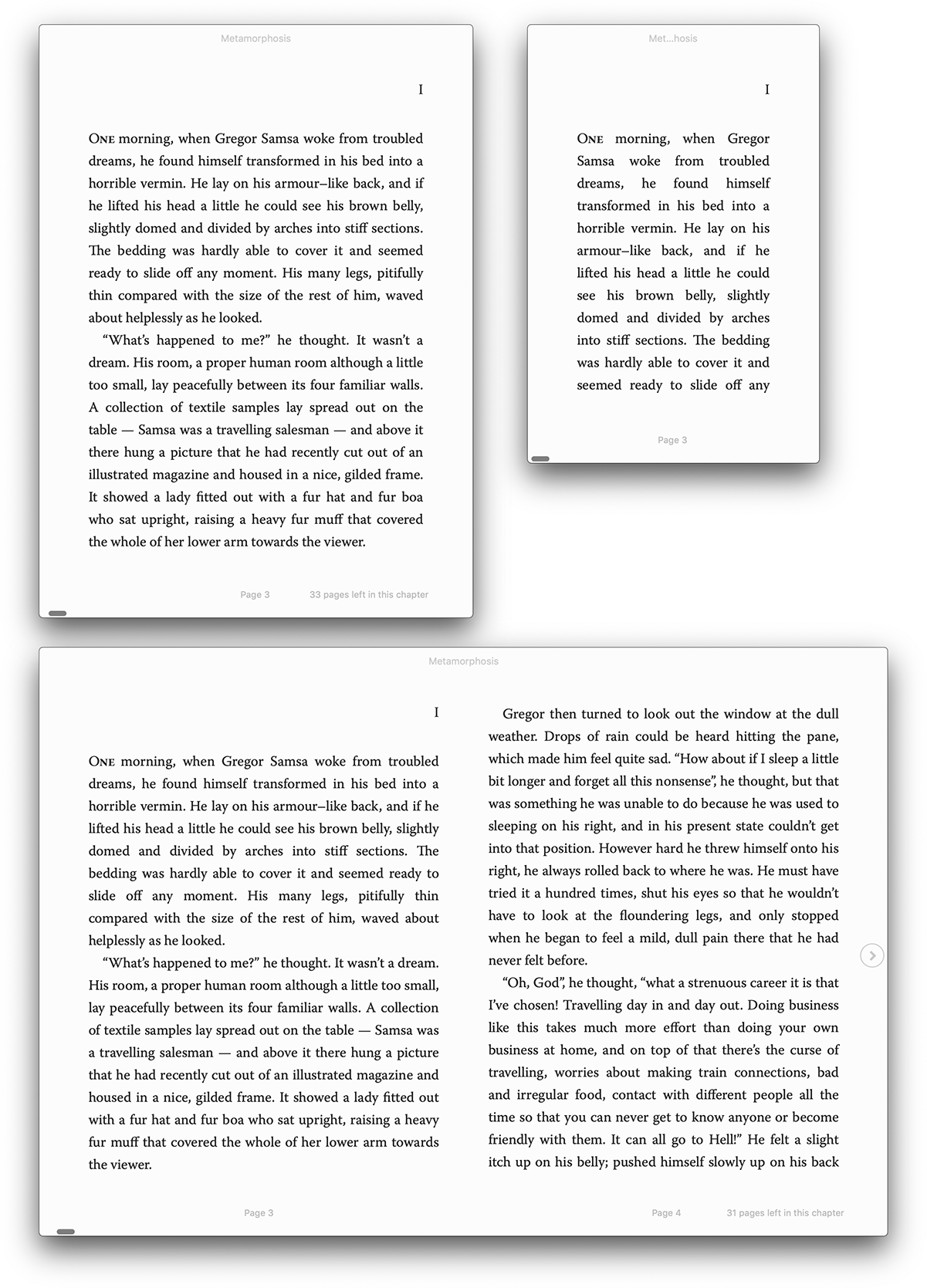Useful information about ebook publishing.
What is an ebook?
This might seem obvious, but it’s worth examining what an ebook is and isn’t. An ebook is a publication made available in digital format and read on devices ranging from mobile phones, through desktop computers to dedicated e-reader devices. Ebooks are usually bought and delivered to customers online.
Many ebooks are simply digital versions of print titles, reproducing the text and images of the original. However some ebooks are digital-only titles containing interactive audio and video content that wouldn’t be possible with traditional print publishing.
Is there a single ebook format?
Sadly no. The industry standard ebook format is EPUB, but the biggest ebook seller Amazon uses its own proprietary file format KFX. (Amazon previously used MOBI but changed in 2011.) KFX is related to the standard EPUB v3 format so it’s possible to create both types of ebook from the same workflow, but it can get fiddly with anything more complex than text-only titles.
I generally produce two versions of each ebook I work on:
- EPUB for platforms that support standard ebooks such as Apple Books, Google Play Books, Adobe Digital Editions.
- KFX for Amazon Kindle.
Will my ebook look like the print version?
Not usually. Standard ebooks are re-flowable, meaning the layout changes to match the current display. There is no fixed page size. The following image shows how the page re-formats to fit the current display:

This is the best ebook format for text-only titles, and the most convenient for readers as it allows for viewing on all device sizes.
But I need my ebook to look like the print version
Do you really? Re-flowable ebooks can also work for illustrated titles. The overall layout has to be flexible but we can create a design that’s clearly related to the print one. However, if you must retain the print design we can produce a fixed-layout ebook. Please note there are disadvantages to the fixed-layout format:
- Fixed page size, does not adjust to fit the viewing device/app.
- Reader has no control over text size.
- Does not work on all ebook devices/apps.
- Multiple formats required to cover all platforms.
The last point is important. Support for fixed-layout EPUB3 files varies, and the Kindle requires the KFX format. Also, the Kindle is difficult to work with and elements that work in an EPUB file may not transfer correctly to the KFX version. I sometimes have to create completely separate fixed-layout ebooks for the Kindle, which adds to the the time and cost. (There are other options for Amazon such as the Kindle Textbook format but we’d have to discuss these directly.)
What about PDF? Isn’t that a kind of ebook?
Technically, a PDF is a kind of ebook in that it’s an electronic version of a publication. However, it’s better think of PDF as an snapshot of a document, capturing the exact layout, fonts, images and so on, wrapping them up in a single file ready for delivery to the printer. You could sell your book in PDF format but there are no large-scale equivalents of the Amazon, Apple or Google ebook stores to distribute it, and the file would have no real copy-protection.
Can I include audio and video on my ebook?
Yes, but there are limitations. EPUB3 supports audio and video but support varies amongst the different ebook platforms. Apple and Google provide the best support, while other platforms such as Nook have varying support. The Kindle is problematic. While Amazon claim to support audio and video in the KFX format it is very difficult to get working, and is barely supported across the Kindle product range.
Can I include interactive elements such as quizzes or games?
Yes, but at this point we’ve moved into platform-specific titles because of varying levels of support. The Apple Books platform has good support for Javascript, the programming language used in websites and EPUB, so it’s possible to include quite sophisticated interactive elements. The Amazon Kindle platform does not support Javascript at all. Other platforms are somewhere in between.
If you need this level of interactivity across different platforms it might be better to develop a custom app instead of an ebook. This can be easier than you think so please contact me for more information.